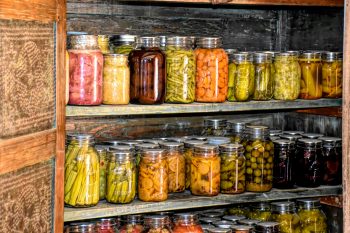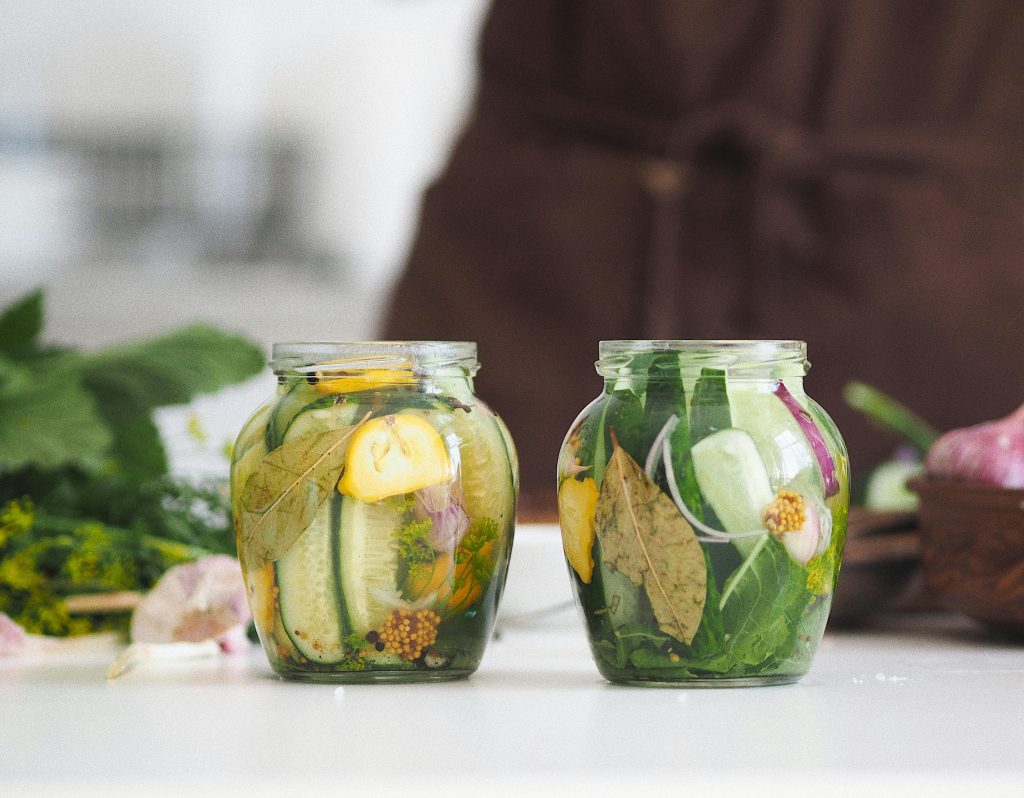If you’ve got plans to start fermenting, canning, or preserving your own food at home, several important health regulations need to be followed for the correct practices of preservation. When you don’t follow these regulations, you may be putting your health at risk by unknowingly providing the perfect breeding grounds for a harmful toxin to grow.
Today, we’re exploring how a common bacteria, Clostridium botulinum, found all around us, can become a toxin that causes serious illness, and how to steer clear of it when you’re preserving food from home or consuming preserved goods.
How does botulism occur in foods?
Foodborne botulism occurs when food contaminated with the ‘botulinum’ toxin produced by Clostridium botulinum bacteria is consumed. This toxin is extremely potent and poses serious health risks.
Clostridium botulinum bacteria are anaerobic, meaning they thrive in environments with low oxygen levels. The bacteria contaminate various types of foods, especially low-acid, anaerobic environments – such as preserved and canned goods with imperfect seals or commercial products with damaged packaging. These bacteria can also be found in soil, water, and are relatively common, and don’t often pose the risk of making one ill, under the right conditions.
However, under the ‘wrong’ conditions—typically low-oxygen environments, low acidity (pH above 4.6), low salt content, and moderate temperatures (40-120°F or 4-49°C)— this common bacteria can grow spores that produce a toxin called ‘botulinum’, which poses serious health risks if contracted, as per the Centers for Disease Control and Preventions.

Unsplash
Why is foodborne botulism a serious health risk?
After ingesting food contaminated with the botulinum toxin, it is absorbed into the bloodstream through the digestive system. The toxin may then interfere with nerve function by blocking the release of ‘acetylcholine’, a neurotransmitter responsible for muscle contraction. This interference leads to serious symptoms, such as muscle weakness, paralysis, difficulty swallowing, blurred vision, and potentially respiratory failure.
These symptoms will typically appear within 12 to 36 hours after ingestion of contaminated food. Emergency medical attention including clinical evaluation and laboratory testing would then need to be done to confirm the presence of the toxin.
Treatment involves administering botulism antitoxin to neutralise the toxin and prevent further progression of the illness. In severe cases, respiratory support may be necessary. However, with prompt treatment, most individuals recover though some individuals may experience long-term effects such as muscle weakness.
Tips to steer clear of foodborne botulism
Although cases of foodborne botulism are relatively rare, it’s still a risk, especially for those who use unregulated methods for canning and preserving foods at home. Here are some tips to reduce the risk of botulism contamination while working with food:
Use safe canning practices: If you’re canning food at home, follow regulations and canning procedures carefully. Use tested recipes and follow recommended processing times and pressures for your altitude. Ensure jars are properly sealed and that there are no signs of spoilage or damage.
Look for imperfect seals: Do not ever consume canned foods if the jars have bulging lids, leaks, or unusual odours. These may indicate contamination and the potential presence of botulinum toxin.
Store canned goods properly: Store store-bought canned goods in a cool, dry place and check for any signs of damage or bulging cans before consuming.
Refrigerate potentially hazardous foods: Refrigerate perishable foods as soon as you can, especially those that are low in acidity and have been opened or prepared. This includes items like homemade sauces, soups, and vegetables. Don’t store these foods at room temperature for extended periods.
Practice safe food handling: Wash your hands and food preparation surfaces thoroughly before and after handling food. Keep raw meats separate from other foods to prevent cross-contamination. Cook foods to their recommended safe internal temperatures.
Avoid giving honey to infants: Honey can contain spores of Clostridium botulinum, which can be harmful to infants under one year of age. Avoid giving honey to infants to reduce the risk of infant botulism.
ALSO SEE: Peanut butter panic? Make your own
Article originally written and published by Savanah Douglas for Woman&Home.
Feature image: Pexels

